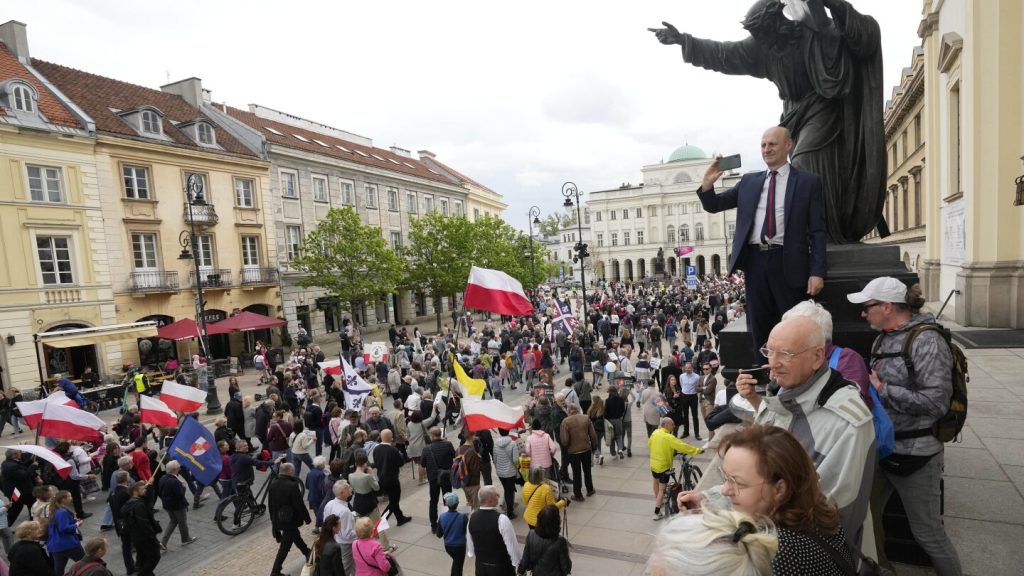The recent march in Warsaw, Poland led by opponents of abortion aimed to protest the new government’s steps towards liberalizing the country’s strict laws. The predominantly Catholic nation has been divided on the issue, with many participants in the march carrying white-and-red national flags or posters representing a fetus in the womb. The Catholic Church in Poland has called for a day of prayer in defense of conceived life and has supported the anti-abortion movement. The march was seen as an opportunity to show support for the protection of human life from conception to natural death, according to a statement from the federation of anti-abortion movements.
Poland’s parliament, which is currently dominated by a liberal and pro-European Union ruling coalition, recently voted to approve further detailed work on four proposals to lift the near-ban on abortions. However, it is expected that conservative President Andrzej Duda will eventually reject these proposals, as he vetoed a draft law last month that would have allowed the morning-after pill to be available over the counter for those aged 15 and above. The country, a nation of some 38 million people, is struggling with a low birth rate of 1.2 per woman, one of the lowest in the European Union. This has led to a debate over the need to relax the strict abortion laws to address the aging and shrinking population.
The current abortion law in Poland only allows abortions in cases of rape or incest, or if the woman’s life or health is at risk. According to the Health Ministry, 161 abortions were performed in Polish hospitals in 2022, while abortion advocates estimate that around 120,000 women in Poland have abortions each year, often by secretly obtaining pills from abroad. Women who attempt to abort themselves are not penalized, but assisting them can lead to up to three years in prison for those involved. This fear of legal consequences has led to doctors turning women away even in cases where abortion is permitted, causing further stress for those seeking the procedure.
Several proposals being processed in parliament aim to address these issues, with one proposal looking to decriminalize assisting a woman to have an abortion. Another proposal, backed by leaders who are openly Catholic, would maintain a ban in most cases but allow abortions in situations involving fetal defects, a right that was removed by a 2020 court ruling. The other two proposals seek to permit abortions up to the 12th week of pregnancy. The ongoing debate highlights the deep divisions in Polish society over reproductive rights and the protection of human life, with both sides advocating for their beliefs and values. As the government continues to navigate these sensitive issues, the future of abortion laws in Poland remains uncertain.


